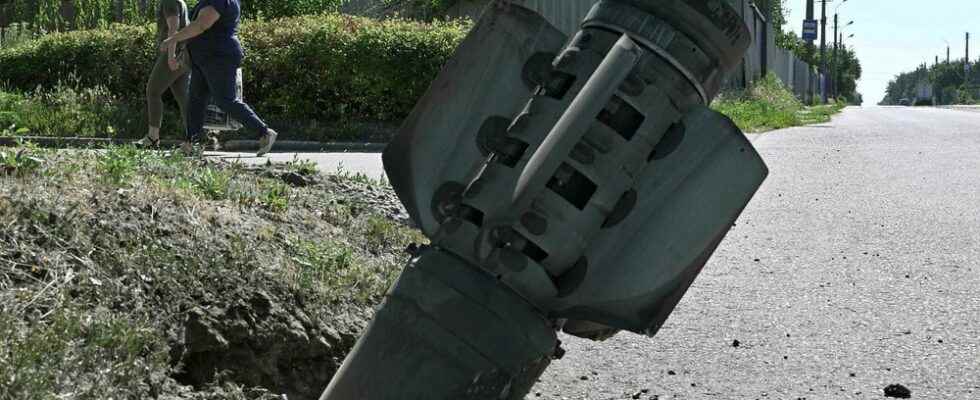Ukraine is now a candidate country for the EU without at least being qualified for it.
But everything else would have been politically impossible.
“We will have to wait until the war is over and Putin captures his sanity.” But Putin had been given a veto on EU internal affairs, and Ukraine had been left entirely to the discretion of the Kremlin. It has been claimed several times that Ukraine does not really exist. But if Ukraine does not exist despite the fact that the Ukrainians and we claim it – then does Europe exist?
Now, of course, the country’s candidate status is more symbolic than reality. Everyone knows it. Ukraine is corrupt, no rule of law, and with freedoms and rights insufficiently protected by functioning democratic institutions. EU member? Only in a distant future that today no one knows the least about. And Ukraine is too big for the EU: only agriculture – with Europe’s most fertile lands – is as big as the whole of Germany and would immediately ruin and force a redistribution of Brussels’ agricultural subsidies.
Excluded. France would never allow it.
That Ukraine from nowhere also stepped past countries in the Balkans that for years have been queuing up for Europe there arouses anger. So we would show our fundamental lack of interest in them, even though some of the Balkan countries are more ready for membership than Ukraine. That’s right. But also that these countries are stuck in the queue because they are still only partially and often reluctantly doing their homework. Some requirements must still be met; everything is certainly not our fault. Sometimes not at all: the nationalist politicians in a state like Bosnia have put in place systems to survive and finance themselves precisely by stubbornly blocking the EU’s minimum requirements.
They know what they are doing: a Europe-capable Bosnia would sweep out today’s political class and replace it with a new one.
After the fall of communism, the eastern part of our continent would return to Europe. There it belonged “at home”; especially in the West, reference was made to “our common European values” – freedom, a rule of law, democratic freedoms and rights. But this reflects the egocentric self-image of Western Europe more than European reality: nowhere in the East were such values at the top of the wish list. Yes, Eastern Europeans wanted freedom: but then an almost anarchist, at least a kind of laissez-faire, not freedom under individual responsibility. And freedom as military security was wanted by the United States, not by Europe (which cannot offer it either), something that offended us. Fast democracy? It becomes difficult to argue when Poland and Hungary are in the process of dismantling what exists of pluralism, freedom of expression or independent courts, and other Eastern countries see Orbán and Kaczynski as role models.
For Europe it looks critical. Did they in the East want anything from us other than money? To be able to continue carpentry on their nation-states from the interwar period, paid by us, without interference from Brussels?
Or should Europe rather be perceived as a common history in a common, reasonably delimited space? Problematic – rather it is about stories, where in the east you got “more Europe” from Habsburg than from Prussia, very little from Russia and nothing at all from the Ottoman Empire. And when we talk about stories, we also talk about different times, confusing enough.
The most shocking thing about Putin’s war is that – despite being “at home” in our time – it seems to take place in a completely different and archaic way.
But people in the same room and at the same time can live side by side in what are different times. In large cities, it is least noticeable. Life in Kyiv is similar to that in Stockholm or Berlin: only slightly more outdated, meager, “plastic” and with more time left to beat. Life in the country in the east, however, is about a completely different time than that in the city and even a Swedish or German rural resident lives in a completely different one than, say, a Ukrainian or Russian rural resident.
There has also we were stuck a long time ago. In my Swedish childhood, the small farmer’s son wanted to go to town to become a police constable. Preferably traffic police in white gloves. In the city he got a uniform and a fixed income, became a (small) man in the state through a big step on the social ladder. In Putin’s Russia, the same peasant boys can exchange their rags for a uniform in the army, earn a steady income, see a water closet for the first time and take a toothbrush in hand, and as a soldier in Ukraine, he can plunder and steal with impunity. He is encouraged to do so: everything from cans, liquor and screwdrivers to refrigerators and computers.
The most shocking thing about Putin’s war is that – despite being “at home” in our time – it seems to take place in a completely different and archaic way: with its belief in geopolitics and battlefields instead of cyberspace and the market, with a maintenance-free soldier who is forced to support itself, a war waged more against the opponent’s civilians than the military, with indiscriminate destruction and ethnic cleansing as its goal.
On a smaller scale, we saw it repeated in the Balkans thirty years ago.
With today’s Europe would have nothing to do with such a war. Therefore, Russia would not belong there. Not even Russian culture, not even “holy” (Thomas Mann) Russian literature; at least according to some leading Ukrainian intellectuals. Instead, Dostoevsky becomes responsible for the war, and by the same logic, I suppose, Goethe well for Auschwitz.
But I do not know who will protect us from such a Europe.
